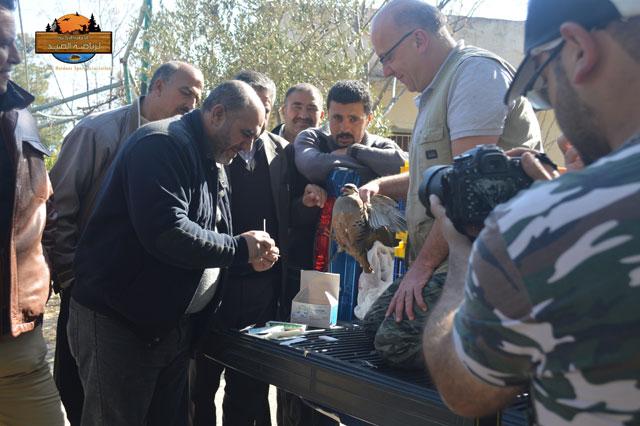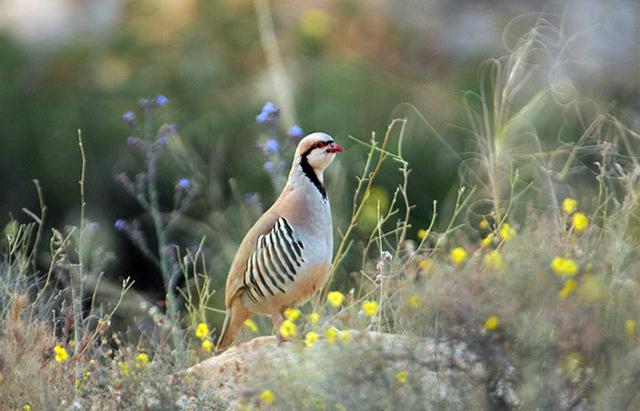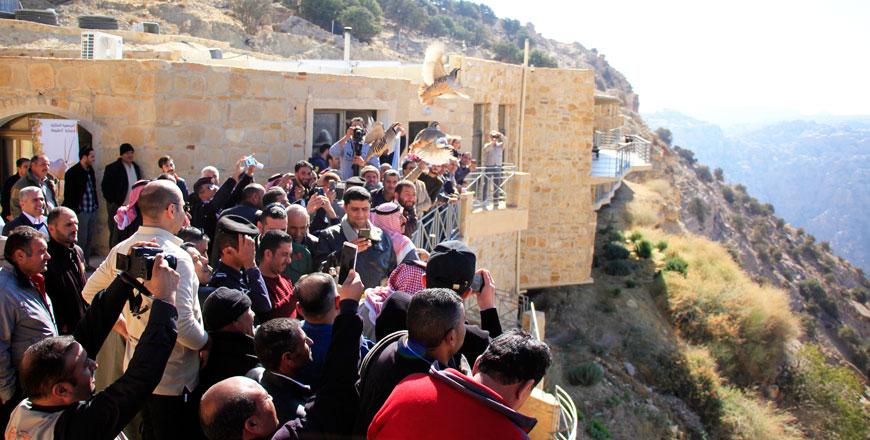You are here
Partridge hunting banned to protect dwindling populations — ministry
By Hana Namrouqa - Sep 05,2016 - Last updated at Sep 05,2016
AMMAN — The Ministry of Agriculture has banned hunting of chukar and sand partridges, two bird species that are highly prized by hunters, an official said on Monday.
The ban is in place to protect the dwindling populations of the game birds, and is effective for three years across the Kingdom, according to the ministry’s spokesperson, Nimer Haddadin.
“Studies indicate that the numbers of chukars and sand partridges in their natural habitat are declining due to multiple factors; mainly random hunting and the destruction of the birds’ habitats and nests by illegal hunters,” Haddadin told The Jordan Times.
Noting that the mating season of the two species is approaching, the official said that the ban seeks to provide a safe environment for the birds to allow their population to increase.
The official said that hunters are allowed to hunt certain species during this time of year, such as quails and specific breeds of doves.
The Royal Society for the Conservation of Nature (RSCN), which is mandated by the Ministry of Agriculture to enforce the hunting regulations to protect wildlife, said that it backs the ministry’s decision.
The hunting ban seeks to stop the decline in the birds’ populations, which is happening across the Mediterranean region, the director of the RSCN’s Conservation and Hunting Regulation Section, Abdul Razzaq Hmoud, told The Jordan Times.
The RSCN has banned the hunting of chukars and sand partridges several times in previous years. Studies have indicated that if random hunting of similar wild birds continues, they could become extinct.
Aside from hunting, climate change and rising temperatures, which shorten the birds’ mating seasons, also threaten the survival of chukars and sand partridges, according to the RSCN.
The decline in the number of chukars and sand partridges has been reported in several Mediterranean basin countries, where hunting of the two bird species has also been prohibited, Hmoud highlighted.
He added that chukars and sand partridges are found in rough topographical areas, and sightings of the two birds as well as reports from the RSCN’s inspectors have indicated that the decline in the number of the two bird species is higher in the Zarqa River basin.
The society has already formulated a strategy in cooperation with the Rangers to enforce the ban, including intensifying inspection patrols in areas where the birds spread, and setting up checkpoints to inspect hunters’ vehicles and make sure they abide by the new decision.
Hmoud added that the Agriculture Law stipulates that those who hunt banned bird species are fined JD100-JD300, while their weapons are seized and confiscated.
“We call on hunters to abide by the new decision, which was announced to protect the country’s wildlife,” he said.
Related Articles
AMMAN — A new population of chukar, a game bird highly prized by hunters, has been released into the wild to offset its dwindling numbers, a
AMMAN — For the first time in three decades, authorities have released hundreds of sand partridges into the wild in an attempt to reverse a
AMMAN — The Royal Society for the Conservation of Nature (RSCN) on Monday released a number of Chukar partridge birds at the Dana Biosphere


















